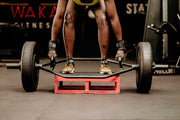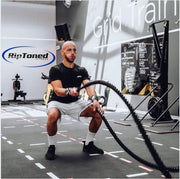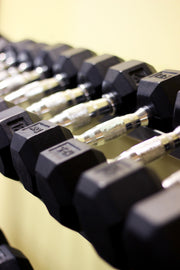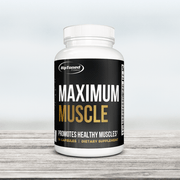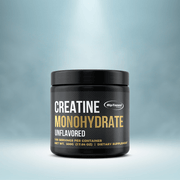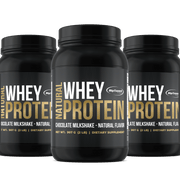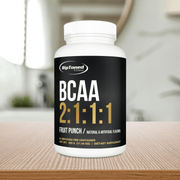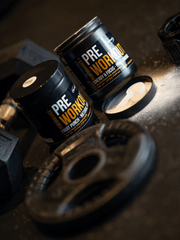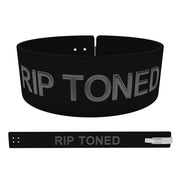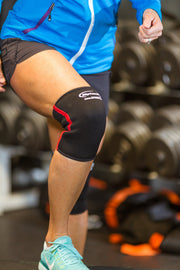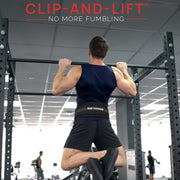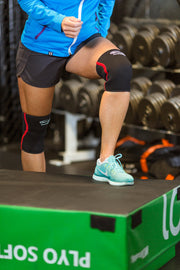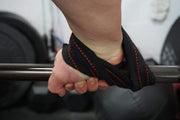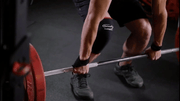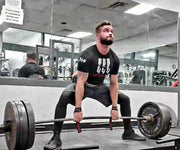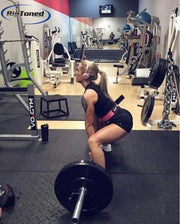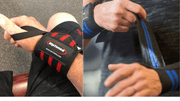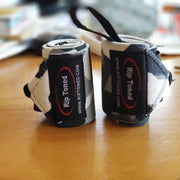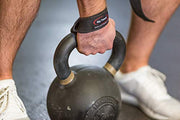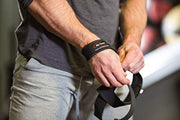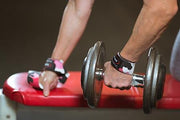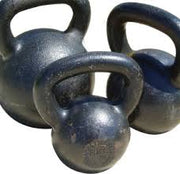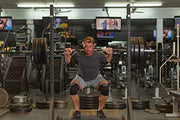Fitness enthusiasts and athletes commonly use pre-workout supplements to improve their performance, increase energy levels, and enhance muscle growth. These supplements usually contain a combination of ingredients such as caffeine, amino acids, creatine, and carbohydrates.
While they have been proven to be effective in improving physical performance, some people may experience bloating after consuming pre-workout supplements. This can be a cause for concern, especially for those who are conscious about their appearance. In this article, we will discuss the potential causes of bloating from pre-workout supplements and give some tips on how to prevent or manage it.
What is bloating?
Bloating is a feeling of fullness or tightness in the abdominal area, often accompanied by excessive gas and discomfort. It can be caused by various factors, such as eating too quickly, consuming certain foods that are difficult to digest, or even hormonal changes.
In the context of pre-workout supplements, bloating may occur due to several reasons. Firstly, some ingredients in pre-workout supplements, such as creatine and amino acids, can cause water retention in the muscles, leading to a feeling of fullness and bloating. Additionally, caffeine, which is commonly found in pre-workout supplements, can also have a diuretic effect on the body, causing dehydration and bloating.
Also, some pre-workout supplements contain ingredients that may cause gastrointestinal distress, leading to bloating, gas, and discomfort. These include lactose, artificial sweeteners, and high amounts of sugar.
Does Pre-Workout Make You Bloated?
The answer to this question may vary from person to person. While some individuals may not experience any bloating after consuming pre-workout supplements, others may experience it more frequently or severely.
As mentioned earlier, certain ingredients in pre-workout supplements can cause water retention and dehydration, which can contribute to bloating. Additionally, if a person is sensitive to certain ingredients in the supplement, it may cause gastrointestinal distress and bloating.
However, it is essential to note that pre-workout supplements are not the sole cause of bloating. Other factors like diet, hydration levels, and digestive health also play a significant role in bloating.
Therefore, instead of avoiding pre-workout supplements altogether, one should pay attention to their body's response and make necessary adjustments to prevent or manage bloating. Additionally, it is always recommended to consult a healthcare professional before making any changes to your supplement routine.
Ingredients to watch out for
If you are prone to bloating after consuming pre-workout supplements, it may be helpful to look out for certain ingredients that could be causing it. As mentioned earlier, some individuals may be sensitive to particular components found in pre-workout supplements.
One ingredient to watch out for is creatine monohydrate, which is known to cause water retention in muscles and may contribute to bloating. Another ingredient to be mindful of is lactose, as it can cause digestive distress for those who are lactose intolerant.
Additionally, artificial sweeteners like sucralose or maltitol may also lead to bloating and gas for some individuals. To avoid these ingredients, it is essential to read the supplement label thoroughly and choose products that are free from them.
Cautious consumption and tips to prevent bloating
To prevent bloating from pre-workout supplements, it is crucial to consume them carefully. Here are some tips to keep in mind:
- Start with a lower dosage and gradually increase it: This will allow your body to adjust to the supplement and minimize any potential bloating.
- Stay hydrated: Drinking enough water can help prevent dehydration, which can contribute to bloating.
- Avoid consuming pre-workout supplements on an empty stomach: Eating a light meal or snack before taking the supplement can help reduce bloating and discomfort.
- Choose supplements with natural ingredients: Opt for pre-workout supplements that contain natural ingredients like green tea extract or beetroot powder, as they are less likely to cause bloating.
- Listen to your body: If you experience bloating or discomfort after consuming a pre-workout supplement, take a break and reassess before continuing.
- Consult a healthcare professional: If bloating persists despite making adjustments, it is essential to seek advice from a medical professional.
- Maintain a healthy lifestyle: Regular exercise, a balanced diet, and proper hydration are essential for managing bloating and maintaining overall health.
By following these tips and being mindful of ingredients, you can prevent or manage bloating from pre-workout supplements. Remember to prioritize your overall health and listen to your body's needs when it comes to supplementation.
Can bloating be a sign of an underlying condition?
While bloating from pre-workout supplements is usually harmless and can be managed with the tips mentioned above, it is essential to note that persistent or severe bloating may be a sign of an underlying health issue.
Some medical conditions like irritable bowel syndrome (IBS), celiac disease, and food intolerances can cause bloating as a symptom. If you experience bloating along with other symptoms like abdominal pain, changes in bowel movements, or fatigue, it is crucial to consult a healthcare professional for proper diagnosis and treatment.
Moreover, digestive issues like constipation or slow digestion can also lead to bloating. In such cases, making dietary and lifestyle changes may help alleviate bloating and promote better digestive health. It is essential to pay attention to your body and seek medical advice if bloating persists or becomes a recurring issue.
Remember, taking care of your overall health is crucial for preventing any potential underlying conditions associated with bloating. So, always prioritize your well-being and make informed choices when it comes to supplementation.
Mistakes that can lead to bloating.
In addition to avoiding certain ingredients and consuming pre-workout supplements cautiously, it is also crucial to be aware of common mistakes that could contribute to bloating. These include:
- Not drinking enough water: As mentioned earlier, dehydration can cause bloating, so it is essential to stay hydrated throughout the day.
- Consuming too much caffeine: Pre-workout supplements often contain high amounts of caffeine, which can cause dehydration and contribute to bloating.
- Skipping meals or not eating enough fiber: Fiber helps with digestion and regulates bowel movements, so not consuming enough of it can lead to bloating.
- Eating too quickly or not chewing food properly: Eating quickly or not chewing food enough can cause air to be trapped in the stomach, leading to bloating.
- Excessive stress: Stress can affect digestion and lead to bloating, so it is crucial to manage stress levels through techniques like exercise, meditation, or therapy.
By avoiding these mistakes and following a healthy lifestyle, you can prevent bloating and promote better digestive health. Remember to listen to your body and make necessary adjustments to your supplement routine, as well as consult a healthcare professional if bloating persists or becomes a recurring issue.
FAQs
Can pre-workouts cause bloating?
Yes, certain components in many pre-workout supplements, such as sodium bicarbonate and various dietary supplements, can lead to bloating or a feeling of fullness. The effect varies based on individual tolerance and the specific formulation of the pre-workout.
What are some common side effects of taking pre-workouts?
Side effects of pre-workout supplements can include bloating, a tingling sensation (often due to beta-alanine), increased blood pressure (especially with caffeinated pre-workout supplements), and, in some cases, weight gain. The intensity of these side effects can vary based on the formula and individual reactions.
How might pre-workouts affect my exercise performance and high-intensity exercise capacity?
Pre-workout formulas are designed to enhance your exercise performance by increasing energy, focus, and endurance. However, some individuals may experience side effects such as bloating, which could potentially impact high-intensity exercise capacity.
How can I choose pre-workout supplements that won't make me bloated?
To avoid bloating, consider choosing pre-workouts with ingredients that you know your body handles well. You may need to experiment with different formulas to find one that suits your needs. Additionally, pay attention to the serving size and consider starting with a smaller dose to see how your body reacts.
Conclusion
Bloating from pre-workout supplements can be uncomfortable and reduce the effectiveness of your workout. However, it can be managed by being mindful of ingredients, consuming supplements cautiously, and making necessary dietary and lifestyle changes.
Remember to prioritize your overall health and listen to your body's needs when it comes to supplementation. Consult a healthcare professional before making any significant changes to your diet or supplement routine if bloating persists.
By following the tips and avoiding common mistakes, you can prevent bloating and promote better digestive health. Stay hydrated, consume enough fiber, and prioritize a healthy lifestyle for optimal results. Always remember to prioritize your well-being above all else when it comes to taking supplements for your workouts.


